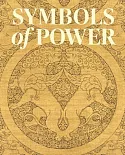Marseille: The Cradle of White Corded Quilting, which accompanies an exhibition of the same name, traces the origins and the commercial development of broderie de Marseille
needlework. During the seventeenth century these supple, all-white corded and quilted furnishings—from bedcovers to quilted bodices and caps—grew out of the thriving textile trade centered on
France’s Mediterranean port of Marseille as adaptations of popular foreign textile products.
Broderie de Marseille is a form of three-dimensional textile sculpture using plain white cloth and white cotton cording, deftly manipulated with needle and thread to reveal patterns
highlighted by the resulting play of light and shadow on the textile surface. Skillful execution of broderie de Marseille resulted in delicate, refined work that graced the homes and
figures of aristocrats and launched a worldwide passion for all-white corded needlework. The quilted works were filled with imagery expressing contemporary cultural values, such as folk
legends, heraldic devices and royal monograms (bedcovers), and floral wreaths and fruits symbolizing good fortune and fertility (wedding quilts). Contemporary versions, today often referred
to commercially as matelassé, are machine made and thus lack the personal skills and intimate connections to the work represented by the confections of the original needleworkers.
In this richly illustrated monograph Kathryn Berenson has exhaustively researched the fascinating story through a broad range of historical records, including household inventories, letters,
commercial documents, and literary references.





















